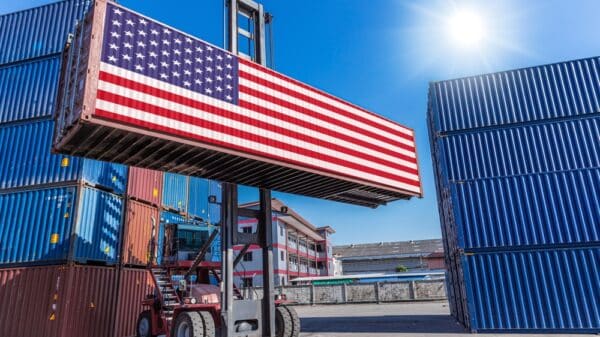A prominent trade association, representing major players in the footwear industry, has made a strong plea to the Trump administration to exempt shoes from the proposed tariffs being discussed. Their concern is heartfelt and logical: these tariffs could hit consumers in the pocketbook hard and even threaten the existence of many businesses in the sector.
In a letter sent on April 29, the Footwear Distributors and Retailers of America framed the situation as an “existential threat” to the entire industry, underscoring just how dire they believe the circumstances are. The echo of their warning is clear: “If the current situation continues, American footwear workers and consumers will suffer.” It’s a call for immediate attention, as they feel that the repercussions of these policies are not just far-off consequences but real, immediate dangers.
Notably, big names in the footwear world, including Nike, Under Armour, Puma, and Adidas’s U.S. arm, stood united in signing this letter. They expressed concerns that these tariffs wouldn’t simply bring shoe manufacturing jobs back to the U.S., as some might expect. The reality is much more complex; shifting production requires substantial capital investment and years of diligent planning. Companies face a daunting task of reworking their entire business models alongside absorbing massive new costs—something that is not feasible overnight.
Countries like Vietnam and Indonesia, key players in global footwear production, are set to absorb the brunt of these steep tariff hikes. For example, Vietnam alone produces about half of all Nike shoes, and any disruptions there would not only impact Nike but also ripple through the entire supply chain, affecting retailers and consumers alike.
As the situation unfolded in late April, President Trump announced a temporary 90-day halt on several proposed tariffs, including those affecting Vietnam and Indonesia. While this offered a brief sigh of relief, it also set off market turmoil and sparked criticism from various business leaders. Many warn of looming challenges for U.S. trade stability, emphasizing that such uncertainty can lead to broader economic implications.
This letter and the collective voices of significant market players highlight a crucial point: the intricacies of global trade and supply chains are deeply interconnected, and decisions made at the policy level do not exist in a vacuum. The stakes are high, and it’s clear that any shifts could push consumers to face inflated prices or, worse, drive businesses to shutter their doors. The urgency conveyed by industry leaders is a reminder that these discussions are not just about numbers—they’re about jobs, families, and the everyday lives of millions.
Image Source: Karol Serewis / Shutterstock





















